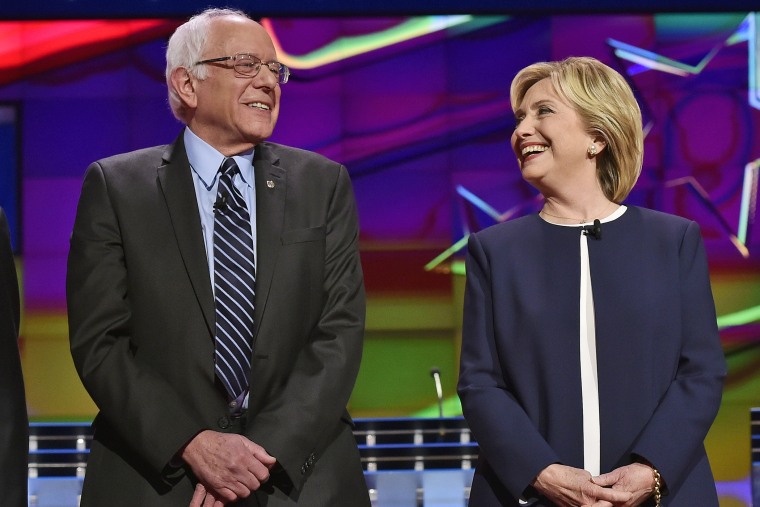The most representative state ... is New Jersey. We expect its primary electorate to be about 57 percent white, 26 percent black, 11 percent Hispanic and 6 percent Asian or other, quite close to the national Democratic electorate. New Jersey won't vote until June 7, although Clinton was well ahead when the last poll was released there in February. After New Jersey comes Illinois, which Clinton won narrowly -- and then Florida, where Clinton won going away. Then there's New York, which votes Tuesday, and where Clinton is 15 percentage points ahead in our polling average. Virginia, another Southern state, ranks as the next most representative; Clinton won it easily. Then there's Nevada, another Clinton state, before we go back to the South to North Carolina, also won by Clinton. The next group of four states (Maryland, Tennessee, Arkansas and Michigan) are roughly tied and include some further representation for the South, along with, finally, one state (Michigan) that Sanders won.
Which states best represent Democratic politics?
If Southern states aren't representative of Democratic politics in general, which are?

Bernie Sanders has faced some criticism in recent weeks over his campaign's willingness to downplay the results from Southern primaries. The region, Sanders said last week, "kind of distorts reality."
The Vermont senator was asked about this in last week's debate, and Sanders focused on the region's ideology. "Look, let me acknowledge what is absolutely true: Secretary Clinton cleaned our clock in the Deep South," he said. "No question about it. We got murdered there. That is the most conservative part of this great country."
There are two central questions here. First, did Sanders lose in the South because voters in the region are more conservative? And second, if Southern states aren't representative of Democratic politics in general, which are?
On the first question, Sanders' case has run into some trouble. While conservatives obviously tend to fare well in Southern elections, there's little evidence that Democrats in the South are significantly more conservative than in other red states like Utah, Kansas, Oklahoma, and Idaho -- states where Bernie Sanders won with relative ease.
But what about the second question? Sanders' broader point almost certainly had very little to do with race -- African-American voters tend to represent a larger percentage of the Democratic primary vote in the South than other regions -- and more to do with the idea that the region doesn't effectively represent Democratic politics at large. But which states do a better job? FiveThirtyEight's Nate Silver took a closer look:
So, for Sanders, this is a bit of a mixed bag.
It's true that some of the most representative Democratic states aren't in the South. But (a) some of them are; (b) Clinton has done quite well in most of these states, regardless of region; and (c) even if the results from the Deep South were excluded, Clinton would still be ahead.